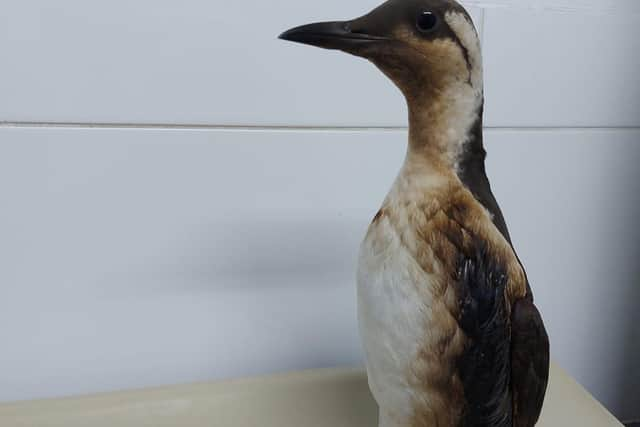East Sussex charity seeks public assistance to spot oil-covered seabirds on local beaches
and live on Freeview channel 276
In recent days, WRAS has encountered several of these seabirds in the Bexhill, Cooden Beach, Rottingdean and Brighton area, and is urging individuals to report any sightings for assistance.
These guillemots, classified as deep-sea birds, typically only venture to shore during nesting periods, making their presence on beaches unusual. Often mistaken for penguins, they have been found oil-covered, with varying types of oil – from thick, black, sticky crude to dirty engine or cooking oil.
Advertisement
Hide AdAdvertisement
Hide AdTrevor Weeks MBE, the founder of WRAS, expressed concern about the different oil types affecting the birds and highlighted the challenges in cleaning and treating them properly.


He said: “The cleaning process is complex, involving treatment for any ingested oil, requiring veterinary care. If an oil-covered bird is found, it is advised not to attempt cleaning or treating it independently but to seek assistance from WRAS or the RSPCA.
“Should anyone encounter an oil-covered bird on the beach, the advice is to avoid a direct approach to prevent it from returning to the sea. Instead, get between the bird and the water's edge if safe, to stop its escape, and contact a rescue organization before approaching.
"WRAS also advises that gloves are worn when handling these creatures to avoid any adverse reactions or effects which could result of touching such chemicals. Any sections of beach which are contaminated with oil should be reported to the local council.”
Advertisement
Hide AdAdvertisement
Hide AdReflecting on past experiences, Trevor noted a decrease in the number of oil-covered birds washing ashore in the last 50 years due to cleaner seas. However, occasional spillages, such as containers falling overboard from vessels in rough weather or oil leaks from sunken WW2 vessels, continue to pose risks. The origin of the recent oil affecting the guillemots remains unknown.
East Sussex WRAS Rescue line is 0300-10-26-999 or if outside of East Sussex please call the National RSPCA on 0300-1234-999.
